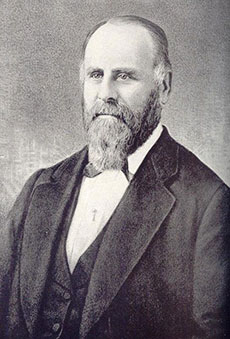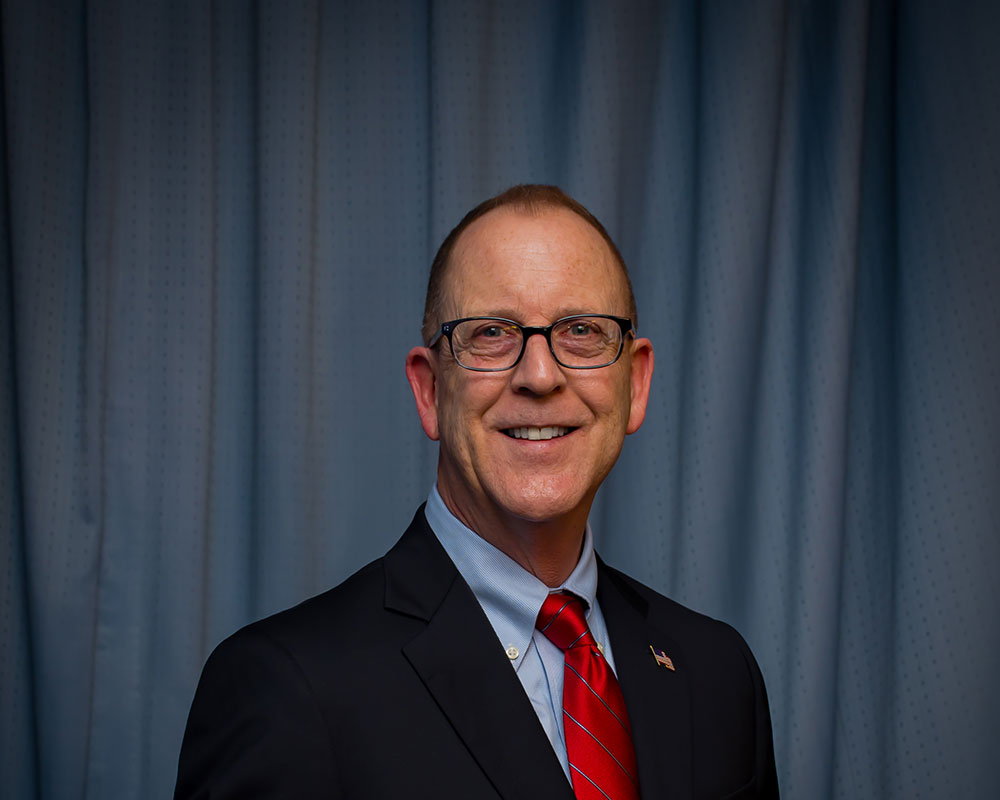
Rowland H. Macy.
City Councilor Thomas J. Sullivan knows what it takes to put on a parade—lots of organization, months of planning and oh so much grunt work. That’s why he appears on WCVB Channel 5’s “Chronicle” Monday night to laud one of Haverhill’s parade pioneers—Rowland H. Macy.
Working with his father—the late Veterans Services Officer John Sullivan—for many years on the VFW’s Annual Santa Parade, Sullivan was asked to weigh in on the world’s most famous parades. Macy’s Thanksgiving Day Parade had its roots in Haverhill, launching as a Fourth of July event in 1854. “Chronicle” Field Producer Clinton Conley tells WHAV Monday night’s show focuses on Hidden Histories such as Macy’s start in Haverhill.
“The premise of our Hidden Histories show is uncovering the surprising stories hidden right under our noses,” Conley explains. “I always thought it was really cool that Macy’s started up in Haverhill—a real whodathunkit—so I was pleased to be able to include that story in our show. Tom met us on the site of the old Macy’s and gave us the scoop.”
Shortly after this fall’s election “Chronicle” approached Sullivan about the site—now a vacant lot on Merrimack Street, downtown.
“One of the most interesting parts of this tale of Macy’s coming and going is that Macy failed in his endeavors in Haverhill and would turn around and be successful in New York City,” Sullivan notes. After talking with local historian Jack Lynch, he realized Macy didn’t have a bad concept—it was just too far ahead of Haverhill mindsets.
“It appears back in that day, people still bartered for their goods. He was not a barterer. Macy brought about a new concept—fixed pricing—in Haverhill. It was not popular with the people.”
According to a WHAV Haverhill Heritage Series article by David Goudsward, Macy opened Haverhill Cheap Store in 1851, eventually occupying a building at 70 Merrimack St. in the newly constructed Granite Block the following year. His landlord was Caleb Duston Hunking, civic leader and prominent shoe manufacturer who operated his shoe business on the three upper floors. The two businessmen became fast friends.
Sullivan says he is impressed with Hunking—for whom the middle school in Bradford is named. Not only did Hunking give up Macy’s rent payment, he financed the entrepreneur’s New York City effort.
Besides the hidden history of Macy’s, Conley says Monday night’s “Chronicle,” which airs at 7:30 on Channel 5, also features other secrets.
Conley explains, “A few examples: one of Boston’s hottest new restaurants—Fox and the Knife—is in an old Whitey Bulger haunt; Aerosmith’s very first van was discovered rusting away in the Berkshire woods; and the Wellesley Country Club was once the local poor farm. Interesting stories behind otherwise ordinary or unremarkable facades.”
